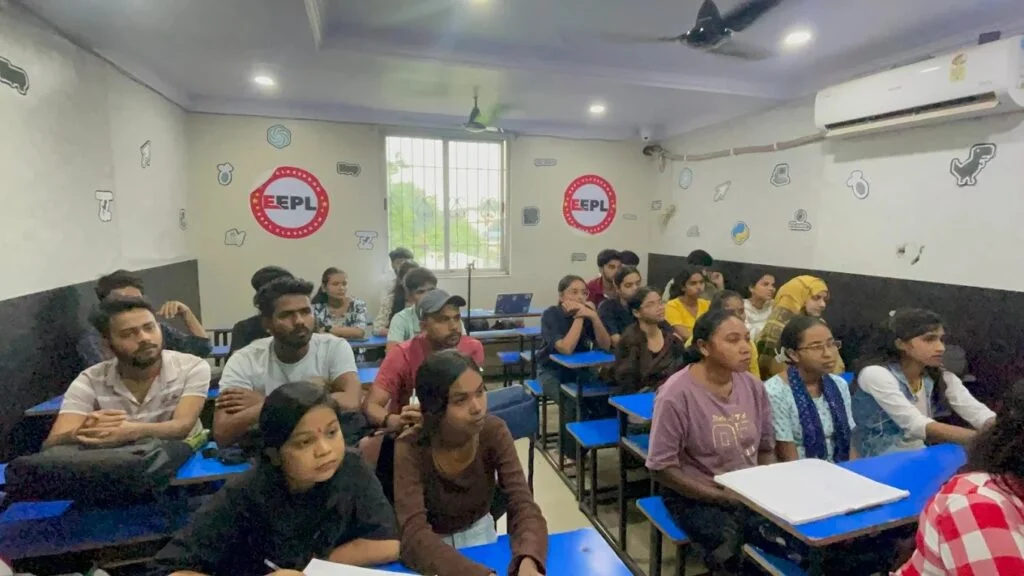6:00 AM – 6:30 AM: Wake Up & Morning Routine
- Wake up early to start the day fresh.
- Hydrate with water or green tea, and have a healthy breakfast.
- 30 minutes of exercise/yoga to stay active and boost energy.
6:30 AM – 7:00 AM: Review Previous Day’s Learning
- Review notes from the previous day to reinforce memory.
- Focus on any concepts you found difficult or unclear.
- Quickly glance through important formulas or concepts for revision.
7:00 AM – 9:00 AM: Physics (High Focus Subject)
- Conceptual Study & Problem Solving: Start with topics that require high focus like Mechanics, Electrostatics, or Optics.
- Watch online lectures or read NCERT for understanding concepts.
- Practice numerical problems related to the topic.
- Take brief breaks (5-10 minutes) if necessary to avoid burnout.
9:00 AM – 9:30 AM: Break
- Have a light snack, stretch, and relax. You can listen to music or take a short walk to refresh yourself.
9:30 AM – 11:30 AM: Mathematics (High Focus Subject)
- Focus on Mathematics as it is conceptually intensive.
- Pick up challenging topics like Integration, Complex Numbers, or Vectors.
- Practice problems from various sources like NCERT, sample papers, or reference books.
- Focus on strengthening problem-solving speed and accuracy.
11:30 AM – 1:00 PM: Chemistry (Moderate Focus Subject)
- Divide your Chemistry study into two parts:
- Inorganic Chemistry (periodic table, chemical bonding) for memorization.
- Physical Chemistry (moles concept, thermodynamics) for problem-solving.
- Read theoretical concepts and then practice numerical problems, especially in Physical Chemistry.
- Revise organic chemistry reactions, structures, and mechanisms briefly.
1:00 PM – 2:00 PM: Lunch & Break
- Eat a balanced, nutritious lunch.
- Relax for an hour; take a short nap or do something light to recharge.
2:00 PM – 4:00 PM: Biology (Moderate Focus Subject)
- Biology requires memorization and understanding.
- Focus on important chapters like Human Physiology, Genetics, and Ecology.
- Review diagrams and flowcharts.
- After reading a section, quiz yourself on important terms, definitions, and processes.
4:00 PM – 4:30 PM: Break
- Relax with a snack or light activity, such as a walk or light reading.
4:30 PM – 6:00 PM: Revision Time (All Subjects)
- Focus on revision: Go through key formulas, reactions, and concepts from Physics, Chemistry, Biology, and Mathematics.
- If you have recent test papers or assignments, use this time for correction and learning from mistakes.
- For each subject, revise a different topic each day to ensure continuous coverage.
6:00 PM – 7:00 PM: Practice Tests/Mock Papers
- Dedicate 1 hour every day to solving mock tests or sample papers.
- Time yourself as if you were in an exam setting. This will help you with time management and understanding the pattern of questions.
7:00 PM – 8:00 PM: Dinner & Relaxation
- Have a light and healthy dinner.
- Spend time with family or relax with activities like watching a TV show, reading, or listening to music.
8:00 PM – 9:30 PM: Light Study/Concept Reinforcement
- Use this time for lighter topics like reviewing notes, doing flashcards, or watching educational videos.
- You can also dedicate this time to problem-solving in areas of weakness.
- Engage in creative ways to understand difficult topics like diagrams, mind maps, or concept videos.
9:30 PM – 10:00 PM: Pre-Sleep Routine
- Review the day’s work: Before going to sleep, review important formulas, key concepts, and the day’s learning.
- Keep your mind calm and avoid using screens.
- Ensure you get 7-8 hours of sleep for proper rest and mental recovery.
Weekly Special Sessions:
- Sundays can be reserved for intensive revision and mock exams for all subjects.
- Plan your weekend study around weak topics, working on past papers, and solving complex problems.
- Incorporate group study sessions once a week for collaborative learning (especially for Biology or Mathematics).
Weekly Special Sessions:
- Sundays can be reserved for intensive revision and mock exams for all subjects.
- Plan your weekend study around weak topics, working on past papers, and solving complex problems.
- Incorporate group study sessions once a week for collaborative learning (especially for Biology or Mathematics).
[5:15 am, 21/11/2024] Eepl Classroom 2: For More Information and Updates, Connect With Us
- Name: Survi
- Phone Number: +91-7488713635
- Email ID: survi@eepl.mr
- Our Platforms:
- Digilearn Cloud
- EEPL Test
- Live Emancipation
- Follow Us on Social Media:
- Instagram – EEPL Classroom
- Facebook – EEPL Classroom
Stay connected and keep learning with EEPL Classroom!
[10:54 pm, 21/11/2024] Eepl Classroom 2: https://eepltest.in/tests/1560/jharkhand-board-class-xii-science-jharkhand-board











